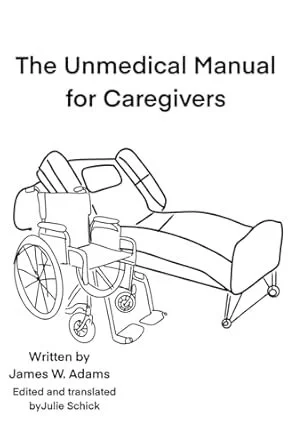Caring for Yourself While Caring for a TBI Survivor: Practical Strategies to Avoid Burnout
Understanding Caregiver Burnout in TBI Recovery
Caring for a loved one after a traumatic brain injury (TBI) is unlike most caregiving experiences. Recovery is unpredictable, often marked by progress one day and setbacks the next. Caregivers are placed in an ongoing state of stress, responsibility, and emotional limbo.
Caregiver burnout happens when this stress builds beyond what the body and mind can carry. It can manifest as exhaustion, depression, or even physical illness. And for those supporting TBI survivors, the risks are especially high.
The Emotional Weight of “Waiting for Them to Come Back”
Many caregivers describe this period as a limbo—your parent, spouse, or child is still physically with you, but they may act, speak, or think differently than before. That sense of “waiting for them to come back” is heartbreaking and can create ongoing grief.
Recognizing these feelings doesn’t mean giving up hope—it means honoring your experience as valid and real.
Common Signs and Symptoms of Caregiver Burnout
Constant exhaustion, even after rest
Increased irritability or impatience
Withdrawal from friends or activities once enjoyed
Feeling hopeless, helpless, or “stuck”
Frequent headaches, stomach issues, or illnesses
If you notice these signs, it’s time to pause and take action. Burnout is not a personal failing—it’s a natural human response to prolonged stress.
Why Caregivers Are at Higher Risk After TBI
Shifting Roles and Lost Partnerships
A spouse may suddenly become a nurse. A parent may need to treat their adult child like a dependent again. These role shifts can cause strain, loss of intimacy, and even resentment—feelings that are difficult to admit but very common.
The Invisible Labor of Unpaid Family Caregivers
From managing medications and finances to offering emotional reassurance, unpaid caregivers often work around the clock. Because much of this labor is unseen, the caregiver’s sacrifices can feel overlooked—adding to isolation.
Physical Self-Care for TBI Caregivers
Prioritizing Rest and Nutrition
Exhaustion weakens the immune system and clouds decision-making. As much as possible:
Eat balanced meals and stay hydrated
Schedule consistent sleep routines
Accept small rest breaks without guilt
Gentle Exercise and Stress Relief
Even 10 minutes of walking, stretching, or yoga can release tension and boost mental clarity. This isn’t about “fitness goals”—it’s about recharging your body so you can continue caring.
Mental and Emotional Care for the Caregiver
Building a Support Network
No one should walk this path alone. Reach out to:
Friends and family members willing to listen
Online caregiver forums (especially TBI-focused)
Local support groups where you can share openly
Therapy and Counseling Options
Sometimes talking to a professional is the healthiest step you can take. Therapy apps make it easier to access confidential support on your schedule.
Journaling and Reflection Practices
A caregiver journal (👉 Click here) can be a safe space to track emotions, identify patterns, and process grief. Writing can turn overwhelming thoughts into something tangible and manageable.
Practical Daily Strategies to Reduce Burnout
Setting Boundaries and Saying No
You cannot do everything alone. Protect your energy by declining commitments that drain more than they give.
Using Routines and Planning Tools
Daily planners and reminder apps (👉 Click here) can reduce mental load, making it easier to keep track of medications, appointments, and personal tasks.
Asking for and Accepting Help
Whether it’s a neighbor cooking a meal, a sibling handling bills, or a respite service giving you a few hours’ rest, saying “yes” to help is not weakness—it’s wisdom.
Balancing Compassion with Self-Preservation
Reframing Guilt
Many caregivers feel guilty for needing time away. Remember: taking care of yourself isn’t selfish—it’s essential for both you and your loved one.
Small Acts of Joy and Personal Identity
Don’t lose yourself entirely to the caregiver role. Hold onto hobbies, friendships, and routines that remind you of who you are, not just who you’re caring for.
When Caregiver Burnout Becomes Dangerous
If stress turns into severe depression, hopelessness, or reliance on substances to cope, it’s time to seek immediate help.
Emergency Support and Resources
National Suicide Prevention Lifeline: 988 (U.S.)
Local caregiver crisis lines and hotlines
Hospital social workers or local TBI associations
FAQs About Caregiver Burnout in TBI Recovery
1. How common is caregiver burnout after TBI?
Very common—most unpaid caregivers experience some level of burnout, especially within the first year of recovery.
2. What’s the first sign I should watch for in myself?
Constant fatigue and irritability are often the earliest red flags.
3. Can journaling or therapy apps really help?
Yes—both provide safe outlets for emotions and reduce isolation.
4. How do I balance caregiving with work or kids?
Set boundaries, use planning tools, and delegate where possible.
5. Should I feel guilty for needing breaks?
Absolutely not. Breaks prevent burnout and allow you to provide better care.
6. Where can I connect with other TBI caregivers?
Check local hospitals, online TBI forums, or organizations like the Brain Injury Association of America.
Final Thoughts: Caring for Yourself Is Caring for Them
Preventing caregiver burnout isn’t just about protecting your health—it’s also about giving your loved one the best chance at recovery. When you care for yourself, you’re able to care with more patience, presence, and love.
👉 For deeper support and real-world strategies, my book The Unmedical Manual for Caregivers covers caregiver burnout and many other challenges in greater detail. Click here to grab your copy on Amazon.
Disclaimer
I am not a medical professional. The information in this article is for general caregiver support and educational purposes only. It should not be taken as medical advice, diagnosis, or treatment. Always consult a qualified healthcare provider with questions about your loved one’s health or recovery.


